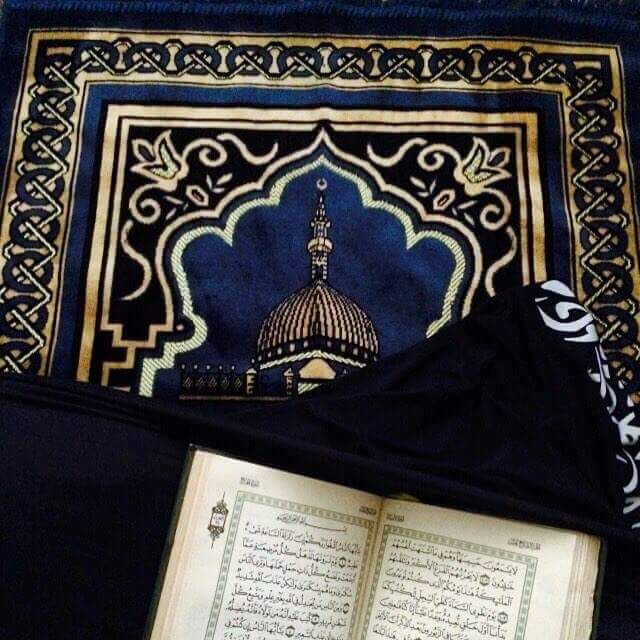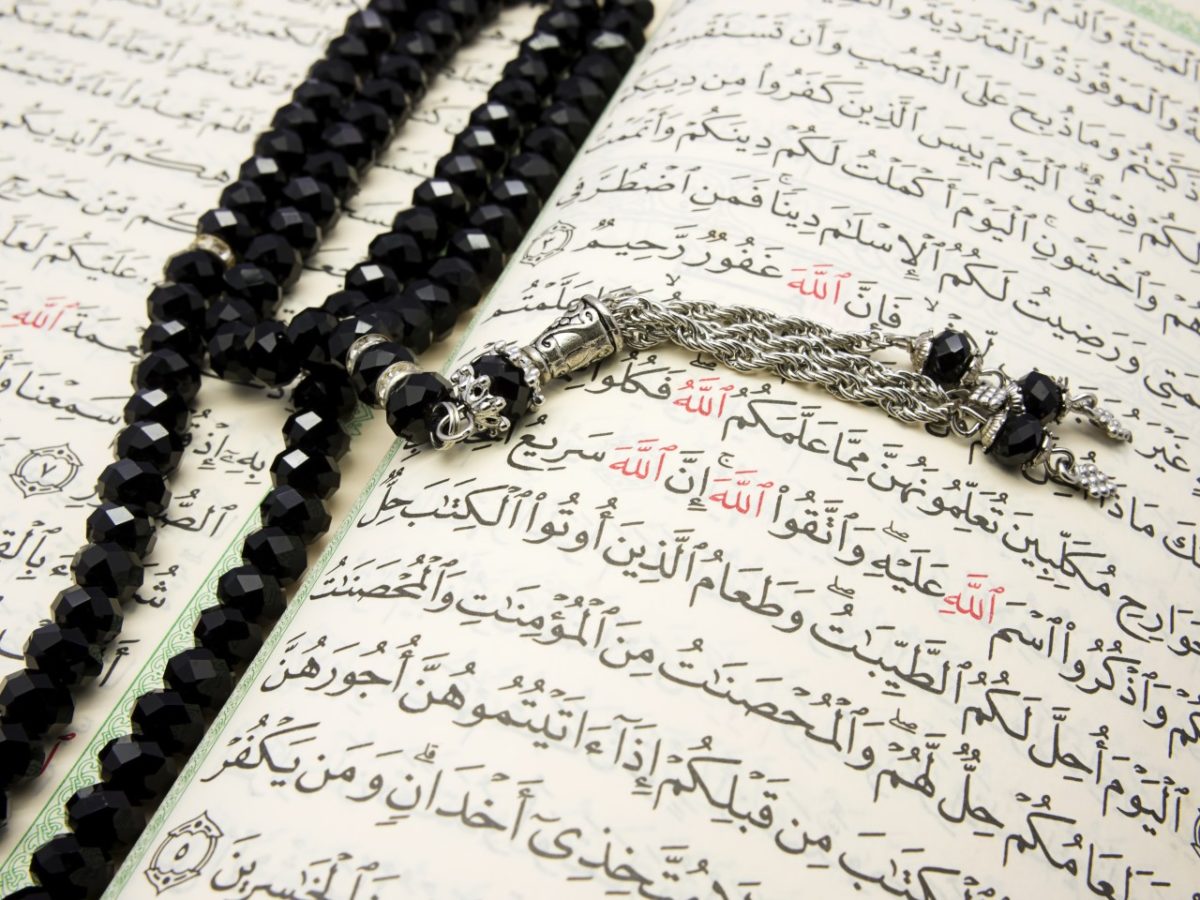﷽
“Verily, we revealed the reminder (Qur’an) and we are its guardian.” (15:9)
Narrated ‘Ali bin Abi Talib (Allah be pleased with him) that the Messenger of Allah (ﷺ) said: “Whoever recites the Qur’an and memorises it, making lawful what it makes lawful, and unlawful what it makes unlawful, Allah will admit him to Paradise due to it, and grant him intercession for ten of his family members who were to be consigned to the Fire” (Tirmidhi as weak).
Alhumdu Lillah, it is through the sheer grace and mercy of Allah, al-Kareem, we find so many people memorising the Holy Qur’an in the UK. In a small country like England, there must be thousands of Huffadh, Ma Sha Allah – Tabarak Allah – Fa Lillahil Hamd. Where I live, in Blackburn, there must be approximately 1,000+ Huffadh (male and female) in the whole town – Alhumdu Lillah. We should not take this lightly, rather, we must thank Allah profusely; firstly, for the blessing of the Holy Qur’an and secondly the blessing of memorising/hifdh. There are countries in the world that don’t have a hundred Huffadh in the whole country, let alone a thousand in a town. Most of these efforts have been in the last quarter of a century. If we rewind back twenty-five years ago, there were very few places that offered Hifdh classes and those that did, the class sizes were very small (less than a dozen boys). Back in the 70s and 80s, places like Bradford and Dewsbury only had one Hifdh class in the whole town, and there was a handful in Lancashire, as well as one in Bolton.
This is all down to the miraculous nature of the Holy Qur’an. One may question, how?
If we were to give these boys and girls who are memorising the Holy Qur’an a book in English, any book of any genre and they were told to memorise it, would they be able to? Surely they should be able to learn a page each day from the book, just like they learn a page a day from the Holy Qur’an. And this should be easier, as it is in their language but, we seldom find such children. This in itself is an indication that memorising the Holy Quran is not based entirely on the child’s memory but it is upon the merit of the Holy Qur’an being a miraculous book. This is a special favour bestowed upon this Ummah, as previous nations were not able to memorise their holy scriptures en masse, thus we will not find a person who has memorised the Bible in its entirety, nor the Torah. ‘And We have indeed made the Qur’ân easy to understand and remember’ (54:17).
So, whoever strives to memorise it and recite it regularly, it will be made easy for him, and whoever turns away from it, will lose it. ‘According to reports from the Banu Israil themselves, the ruler of Rome, Anitos Apifonis got every single copy of the Tawrah and burnt it until not a single copy was left. The same happened to the Bible so the original transcriptions became extinct as a result of the attacks of Titus of Rome…’ (An Approach to the Qur’anic Sciences).
Nowadays, we have a wholesale of Huffadh and a greater bulk on the production line wanting to become a Hafidh. This all seems good and well on the surface but, we must remember a Hafidh is a soul chosen by Allah SWT to protect His book, like the verse mentions, ‘Verily, we revealed the reminder (Qur’an) and we are its guardian’ (15:9).
However, let us bear in mind, becoming a Hafidh is not Fardh Ayn (obligatory on everyone). The Sahabah (Allah be pleased with them) were not all Hafidh, some only knew a few verses or just a Surah. Great Imams like the Master of Hadith, Imam Bukhari (Allah have mercy upon him) was not a Hafidh, some of the greatest scholars in later times like the esteemed Allamah Anwar Shah Kashmiri (Allah have mercy upon him), the honourable Shaykhul Hadith Mawlana Yunus Saheb (Allah have mercy upon him) were not Hafidh of the Holy Qur’an. If these scholars who had photographic memory were not Hafidh, why do some parents force their children to memorise? Parents need to have a balance with their approach towards Hifdh, otherwise, this can have negative consequences later on in life. Becoming a Hafidh has great rewards, no doubt, but we also need to bear in mind if your child is not cut out for it, please do not force them and suffocate them. Consequently, such children may end up completing their Hifdh, but rarely keep up with their revision thereafter and this has severe punishments attached to it. Becoming a Hafidh is only part one, retaining your Hifdh is part two and this is the bigger commitment. Memorising and retention are both as important as each other. It is more virtuous that your child learns the last ten Surahs voluntarily and remembers them till death, rather than forcing him/her to memorise the full Holy Qur’an and he/she later forgets it. They will then be committing a major sin as the verse explains, ‘The one who turns away from my message, he shall have a straitened life, and We shall raise him blind on the Day of Judgement’ (Surah Tahaa).
My purpose is not to be negative and discourage parents from Hifdh; it is merely an eye-opener and a gentle reminder of the realities. We frequently hear the virtues of a Hafidh, but seldom hear the other side which are the warnings of forgetting the Holy Qur’an. For now, let us ponder upon the following:
- Not every child HAS to become a Hafidh.
- The virtues of a Hafidh are great, but the warnings for those who forget the Holy Qur’an are just as great.
- Becoming a Hafidh does not guarantee you Jannah, you must act upon the Holy Qur’an and carry out other obligations such as salah, fasting, keeping a beard, good etiquette and so forth.
- Memorising the Holy Qur’an is not a medal to be worn around the neck once completed. It has implications and we must repeat and revise it until our death along with leading Taraweeh salah.
- A Hafidh is not like someone who has obtained a degree or achieved a certificate and has no further obligations. The Hafidh has a duty thereafter to i) behave like a Hafidh according to the Sunnah ii) to understand the Holy Qur’an, especially what is halal and haram.
Narrated by Samurah bin Jundab (Allah be pleased with him), the Prophet (ﷺ) said in his narration of a dream that he saw, ‘He whose head was being crushed with a stone was one who learnt the Qur’an but never acted on it, and slept ignoring the compulsory prayers’ (Bukhari).
My aim is to create a balance – alongside all the virtues of Hifdh, there are also the punishments for forgetting the Holy Qur’an. This does not necessarily mean forgetting the whole Qur’an, it can be a Surah or even just a verse. Many people learn Surah Yaseen or parts of the Amma para (30th) in childhood, then later in life tend to forget it – the same punishment applies there too.
From Anas bin Malik (Allah be pleased with him) that the Messenger of Allah (ﷺ) said: ‘The rewards for my Ummah were displayed before me, even (the reward for) the dust that a man comes out of the Masjid with. The sins of my Ummah were displayed before me, and I have not seen a sin worse than that of a Surah or an Ayah of the Qur’an which a man learned and then forgot’ (Tirmidhi).
‘And We have indeed made the Qur’ân easy to understand and remember’ (54:17).
So, whoever strives to memorise it and recite it regularly, it will be made easy for him. And whoever turns away from it, will lose it. Imam Ibn ul-Munadi (Allah have mercy on him) said in Mutashabih al-Qur’an (p. 52), ‘The Salaf were always afraid of forgetting Qur’an after they had memorised it because this was classed as a shortcoming.’ Imam Suyooti (Allah have mercy on him) said in al-Itqaan (1/106), ‘Forgetting it is a major sin.’ As was stated by Imam Nawawi (Allah have mercy on him) in al-Rawdah and others, because of the Hadith “I was shown the sins of my Ummah…”
For a Hifdh family (who have a child/ren memorising Qur’an), they need to prioritise. They need to realise that memorising the Qur’an isn’t an honour bestowed on just anyone. Yes, you are the type of parents, if the Oxford Dictionary had a definition for you, it would read thus,
Hifdh parent
/hɪfdh parent/
noun.
“a mum or dad whose social, emotional, physical and psychological decisions are governed by what para their children are memorising”
When one commits to this, they need to put their heart and soul and mind into it, and everything else is secondary.
Every Muslim parent wants their child to be successful in both worlds and to keep them focused on the straight path. One of the surest ways to raise one’s child firmly on the Deen is to create a connection with the Holy Qur’an which has been explicitly sent down as a guidance for mankind. For this connection to take place, one needs to create an affinity for this book to inspire feelings of attachment. Understanding the Holy Qur’an and exploring its depth can all be developed later in life, but as long as parents are able to create an association between the child and the Holy Qur’an, the most important job of all is done.

Tips for parents, In Sha Allah
Your intention should be correct for making your child a Hafidh – to please Allah SWT and to inculcate love for the Holy Qur’an in your child. We often hear parents talking about ‘free tickets to Jannah because my child is a Hafidh.’ It’s like the poor child is carrying the sins of the whole family and if he does not complete Hifdh then the family are doomed for Hell. La Hawla Wa Laa Quwwata Illa Billah.
- First and foremost, observe your child’s memory skills and conclude if your child has the ability to memorise the Holy Qur’an by testing his current Surahs and Duas. As your child becomes better at reciting the Quran, inspire him to memorise portions of the Quran such as the short Surahs, and some important, daily ones like Surah Yaseen and Surah Al-Mulk. Explain to them the importance of these various Surahs as well to create an understanding and an extra bond with the Quran.
- Instil the love of the Holy Qur’an into your children by buying them an audio Qur’an. Play short Surahs whilst in the car or even on YouTube at home as they are easier to memorise – do this daily, in the morning or at night.
- Start early –“learning when young is like engraving on stone.” From birth (or even in the womb), recite the Holy Qur’an to them in a beautiful voice. Let the sound of your Qira’ah evoke love and an attachment to the Quran for them. What would be better is to recite the Quran after Fajr, so that when your child opens his/her eyes in the morning, the very first sound he/she hears are the Words of Allah.
- Set goals and rewards. Treat your child with positive reinforcements like their favourite chocolate or extra playtime when they complete a Surah/Para as this will motivate and encourage them further. Constantly remind them of the reward and that their efforts are not being wasted.
- Set a timetable at home that works simultaneously and effectively with school time and school work. Arrange two short learning sessions rather than one long one – from personal experience, after Fajr and after school is effective. Most, if not all, experienced teachers advise the best time to memorise to be after Fajr. Memorisation during the daytime has also proven to be effective as long as the child is stress-free and is not heavily distracted with mind-numbing game consoles and other technology.
- If you like, you can create a healthy competition between your children, however, DO NOT compare your children, because every child is unique. Set different goals for each depending on their capabilities and see who reaches their goal first.
- Model what you want your children to emulate – children learn most from their parents’ actions rather than their commands. Engage yourself with the Holy Qur’an, try to memorise parts of it yourself and you will notice that your children will take more interest in picking up the Holy Quran themselves. Actions speak louder than words.
- Provide the right environment with the right ambience – the child’s surroundings are equally as important as the actual memorisation itself. A serene and quiet environment can reduce time spent on memorising a page by almost 10-15% as well as making it easier to retain, as the mind does not have to process and turn-off distractions. Try selecting a place with greenery as plants tend to emit a positive energy. The inner spiritual surroundings of the heart and soul are even more important. It is hard for the Holy Qur’an to exist in a heart that is occupied with music, television, cartoons and games. It is the job of the parent to create an environment conducive to learning the Qur’an by keeping their children away from negative influences, and providing them with the opportunity to go regularly to the Masjid, meeting good Muslims, pious people and attending gatherings where they can learn about the Deen. A hifdh family is different from a normal family.
- To pace is better than to race. Some children can learn three pages every day, others struggle with three lines. Every child is different so pace your child according to his level. Do not put a timeline on when the hifdh needs to be finished as this can make the child panic, lose confidence when deadlines are not met and are put under unnecessary pressure. Many parents demand and force (even sub-consciously) their child to finish their hifdh ‘before their GCSE exams’ or ‘before starting college’ so that ‘it’s out of the way’. Although this seems practical, it can sometimes have an adverse effect with the child wanting to quit due to feeling unable to finish ‘on time’. Even if it is a lifelong task, remember ‘quality is better than quantity’. Quran is easy to memorise and remember – consistency and patience is the key. Let your children learn with love in their hearts, rather than force and stress.
- Last but not least, be patient and do not get angry when your child makes mistakes. Every child is different, and you must not create despondency in them by becoming exasperated. Try and sit with them to help them learn, encourage and give a mother and father’s support. Make dua to Allah SWT to help your child and to keep them on the path of learning throughout their lives. Pray Tahajjud and give Sadaqah on behalf of them. The Prophet (ﷺ) said: “Three supplications are answered, there being no doubt about them; that of a father (for his children), that of a traveller and that of one who has been wronged” (Abu Dawud).
In your sajdah, when it rains, when you’re fasting, when you’re walking or driving or about to sleep—every moment—make Duʿâ for Allah to open the Holy Qur’an for your child, to make it easy for them to memorise, to make them successful in their memorisation and for them to love, live and teach the Holy Qur’an through all of their intentions and actions.
Memorising the Holy Qur’an may seem like an insurmountable mountain in the beginning but with every step you take up that mountain, the body will get stronger, In Sha Allah, and with time, consistency, determination and perseverance, it will get easier, they’ll get faster and eventually they will make it to the very top of that mountain!
NB: One addition, particularly for mothers, is to feed your child some memory boosting foods, such as raw honey, Zamzam water, olive oil, dates and almonds. Please avoid unhealthy and takeaway food or anything that has a lack of vitamins and minerals, contains high cholesterol, white sugar, carbonated beverages, processed carbohydrates and overeating in general. Children should get sufficient sleep and a good amount of exercise. Exercise causes more oxygen to transfer to your brain and a lack of exercise leads to laziness, weight gain, and internal health issues, and will consequently affect memorisation and other mental faculties.
The second issue is that of a teacher, i.e. finding a good teacher. The Holy Qur’an cannot be learnt without a teacher. Even the Messenger of Allah (ﷺ) learnt from angel Jibreel (Alayhis Salam). Similarly, Allah’s Messenger (ﷺ) taught the Holy Qur’an and listened to it from his Companions (Allah be pleased with them). A good teacher will not only correct one’s recitation but also teach the correct Tajweed and pronunciation. From my own experiences of teaching children who have left other Madrasahs or classes that run from home, there seems to be a lot of emphasis on sabaq i.e. the new lesson. Little or no emphasis is being put on their revision i.e. dawr. Alongside this issue is of some classes being full to the brim. I strongly believe that having 15-20 students in a Hifdh class is far too much, especially when the allocated time is typically two to two and a half hours per day. Having this high number of children in one class, in that amount of time, is extremely unfair on them as they do not receive the full desired and needed attention. This then leads me on to the extortionate fees at such places. So, we have this short amount of time for the high number of children receiving minimum attention, at £10 – £15 per week. Anyone can do the maths and see that some Madrasahs, unfortunately, are turning into a business. Unfortunately, some teachers are too focused on ‘quantity’, rather than ‘quality’ and there is ample proof of this. I am no saint nor a great scholar but if you are teaching the Holy Qur’an solely to make money or business, your teaching will be bereft of any sort of barakah and noor.
“The best among you (Muslims) are those who learn the Qur’an and teach it” (Sahih Bukhari)
Tips for teachers In Sha Allah:
- Having a pure intention: Whether it is memorising the Qur’an or doing anything else for the sake of Allah SWT, the single most important thing needed for the success of that goal is to have the right intention. One must secure one’s intention purely for the sake of Allah SWT, for even if the person does not achieve success in this world, his success is guaranteed in the hereafter. Do not make your Madrasah/Class a money making business. Also, remind your students to have a firm intention for Allah SWT.
- “And recite the Qur’an (aloud) in a slow, (pleasant tone and) style”(73:4). Ali (Allah be pleased with him) commented on this verse saying, “Tarteel is Tajweed of the letters and recognising the places of Waqf (stopping). Before teaching the children Hifdh, please ensure their Tajweed is rectified and their pronunciation is correct as incorrect pronunciation can change the meaning.
- Don’t have an age limit for your class, as there is no real age when to start Hifdh and it is never too late – In Sha Allah. Some teachers do recommend age seven, others recommend eleven. My personal opinion is that some children are seen to mature before others so can start earlier. Sometimes children of the same age are worlds apart in their understanding and receptiveness. Sometimes a child who is brilliant in school might have a harder time with the Holy Qur’an. Judge your student for who he is before embarking him on the journey to learn the Qur’an.
- Ensure your students have one specific copy of the Holy Qur’an from which he/she reads all the time. A visual image of the page leaves an imprint in the mind making it easier to recall later.
- Encourage students to read melodiously and beautify their recitation as much as they can. It is pleasing to one’s ears and provides an incentive to continue with the memorisation. It helps to make one’s memorisation firm and strong because any mistake will instantly feel and sound incorrect as it will distort the harmony of the rhythm one is used to. A Miswak is instrumental in this, it cleans the teeth but also clears the throat. Ali (Allah be pleased with him) said: “Verily, your mouths are the pathways of the Qur’an, therefore cleanse your mouth with the Miswak thoroughly” (Ibn Majah).
- Keep rewards charts/stickers for the children; praise them regularly for their good efforts and gently correct them when they falter. Avoid negativity, never use a loud voice, harsh words or insulting remarks when it comes to instructing or motivating your students.
- “And if an evil suggestion comes to you from Satan, then seek refuge in Allah. Indeed, He is Hearing and Knowing” [7: 200]. Shaytan will always try and stop this meritorious deed. Remind your students of the virtues of the Qur’an and becoming a Hafidh of the Qur’an. Consistency is key and there are no holidays or weekends when you are memorising Quran. Students should be trained (as well as parents) to understand that any time off will most certainly have repercussions on their learning. Also, try not to give too many holidays in summer and in Ramadhan too as this can be disastrous in Hifdh class.
- The Ustadh should always remain in a state of Wudhu, reminding the children to keep their Wudhu for as long as possible. “Truly, Allah loves those who turn unto Him in repentance and loves those who purify themselves (by taking a bath and cleaning and washing thoroughly their private parts, bodies, for their prayers, etc” [2: 222]. The Prophet (ﷺ) used to remain in a state of cleanliness and Wudhu. This is one of the best ways to keep Shaytan from influencing us and whispering evil thoughts. Allah SWT loves those who keep themselves clean and it is only His love and protection that can help us defeat our greatest enemy.
- I was reading online about a particular Ustadh in another country whose Hifdh class students were known to be the best in the town. Why? Every month he would gather the students one evening and make them lead in Tahajjud, they would read their Qur’an that they had memorised that month. This might be hard, but not impossible! If not for Tahajjud, maybe one weekend in the daytime make them lead in Nafl Salah. This will boost their confidence and also train them for Taraweeh, which is the litmus test for every Hafidh.
- And finally, the last point but probably the most important – there is absolutely no excuse or justification for physical beating or abuse when it comes to teaching. This was never seen in the life of the Prophet (ﷺ) nor the illustrious companions (Allah be pleased with them). I know of many adults who have either left Islam or abandoned the Holy Qur’an at an older age because of the harshness that was associated with it at a younger age, due to culture and not religion. I always say, “give them sweets and avoid the beats.”
NB: Teach the students Adab/etiquettes – how to hold the Holy Qur’an with respect, not to make drawings in their holy Qur’an and always carry the Holy Qur’an in their right hand. It is very sad to see, more often than not, children walking home with their holy Qur’ans in their left hands, which is such a basic etiquette generally forgotten by Ustadhs.
Exclusive advice from Umm Muhammad (a hafidhah class teacher)
I felt girls are usually left out when it comes to Hifdh, even though this is changing now. Alhumdu Lillah, in Blackburn we have half a dozen Hafidhah classes. So I asked one of the local teachers to write a few paragraphs, as advice for girls.
My personal experience is girls have a better attention span when it comes to learning and focusing. However, they are fragile by nature (especially when they are younger).
It is more beneficial for girls to start at a young age (before puberty) as it gives them a head start and they will not be disturbed by their menstrual cycle. However, Hifdh can be started at any age, as stated previously in the book.
Once girls start their menstrual cycle it becomes a little harder due to the number of days they are taking off from learning and revising each month. The impact of this is it is harder for them to get back into a routine and they can struggle with sabaq para and dawr (revision) as a result.
Repetition: Begin with one verse or a group of verses and repeat it/them until you’ve committed them to memory.
Writing – Go over the verse with your finger over and over. For visual and kinesthetic learners, the process of moving one’s hand to dictate the verses, combined with the visual focus of spelling every word correctly, helps commit the verses to the brain’s long-term memory.
For kinesthetic learners, movement is key to learning. Directing the verses means acting out key elements in verses with hand or head movements. So, for example, if the verse is discussing rain, one can use one’s fingers to make the movements of rain coming down from the sky. If the verse mentions an elephant, one can use one’s arms to make the trunk of an elephant. This would only be applicable for those who know the Arabic translation of the Qur’an.
In comparison to boys there is less emphasis and encouragement on girls to do Hifdh, as there is fear that due to their menstrual cycle and childbearing, females can forget or have less time to revise. Whilst this may be true, a person who has memorised and has revised well in their student years will not find it too difficult to maintain, In Sha Allah. I completed my Hifdh after marriage, Alhumdu Lillah!
Memorising the holy Qur’an is like working out with weights. At first, when you begin lifting weights, you lift a certain amount that you can handle and heavier weights may seem impossible. You may look at others who lift weights and stare in awe as they lift so much more than you feel you could ever do. But if you lift those same weights every day or every other day for a year, they become too light for you! You add more weights as your body strengthens and eventually even those are too light. So you continue to add as your body becomes stronger, faster, and all of what you previously used to lift no longer proves challenging.
It’s the same way with the Holy Qur’an. It takes practise. Commitment. Time. Focus. Energy. And if you aren’t doing it every single day and working with a teacher on a daily basis, it’s going to take even longer. That’s okay. It is not a race. You do not need to finish your entire memorisation in a year or two or even three or four if you have all these other life responsibilities going on. Enjoy the journey of memorisation. When you’re frustrated, take a short break to rejuvenate and regroup, and then begin again.
Always remember, a female doing Hifdh is full of blessings – for herself and her family/children. Finally, only women have this blessing of conceiving and if a woman recites Qur’an regularly during her pregnancy, surely the barakah will be seen on the newborn child. If a non-Hafidha can also recite Holy Qur’an, surely it is much easier for a Hafidhah to recite off by heart whilst carrying out her daily chores.
I hope to see more girls becoming Hafidhah and learning the meaning of the Qur’an, along with teaching Tafsir and Tajweed, In Sha Allah. The importance of learning is just as much in women as it is in men. My advice to the Ummah at large is to show respect to such girls, just like we respect the males as well.
I will conclude with some advice for those who are either fully Hafidh or have memorised a portion of the Qur’an but are struggling to revise and refresh it. It was narrated that ‘Abdullah (Allah be pleased with him) said the Prophet (ﷺ) said: “It is not right for any one of you to say, ‘I have forgotten such and such.’ On the contrary, he has been made to forget. Try to review the Qur’an, for it is more likely to escape from men’s hearts than camels (let loose)” (Bukhari, 5032).
I read these lines of poetry written by Imam Shafi’ee (Allah be pleased with him) when he complained to his teacher about a weak memory and they have stayed with me since:
I complained to Wakee‘ RH about my poor memory:
Give up your sins, was his advice to me;
For knowledge is a light from divinity,
And the Light of God is veiled by iniquity.
If one strives hard to review the Qur’an regularly, there will be no sin on him even if he does forget some of it, for Allah sees the effort. The blame is on those who neglect the Qur’an and fail to review it and read it regularly. Let’s put it this way: the blessings of memorising the words of Allah and the barakah it brings to the life of a Muslim cannot be beaten! My advice would be to memorise as much as you can even if it is an Ayah and review it every day, for the Qur’an will be a great companion to have in the grave and on the Day of Judgement. Additionally, for Madrasah teachers who aren’t necessarily Hifdh teachers, let them be aware of implementing the memorisation of certain virtuous Surahs such as Surah Waqiah, Surah Mulk, Surah Kahf. The student may memorise them at the moment but later forget or keep up with its revision as to them this is not necessary because they are not a Hafidh/Hafidhah and also, the whole system of retention is not embedded in them like it is for an actual Hafidh/Hafidhah.
We, the Huffadh need to contemplate once or twice a week about how much Allah Ta’ala has been kind to us that He has made us from the elite of this Ummah. Are we living up to this title? With what perspective do the people look at us? Do they respect us because of who we are or because of our being from those who uphold the Qur’an? These are just some questions we need to ask ourselves and ponder over – Hadhrat Mawlana Muhammad Saleem Saheb Dhorat (hafidhahullah).
Since there is no book except the Book of Allah that is free from deficiencies or errors, we always welcome and encourage any advice, comments, criticism and corrections so long as they are scholastic and evidence-based.
Allah grants this book His approval.
https://www.youtube.com/watch?v=bC9CykWg-uM

Ismail ibn Nazir Satia (One who is in dire need of Allah’s forgiveness, mercy and pleasure).
1 Muharram 1439



 Zainab bint Younus, Canada
Zainab bint Younus, Canada I am a Muslim. I am British.
I am a Muslim. I am British.




